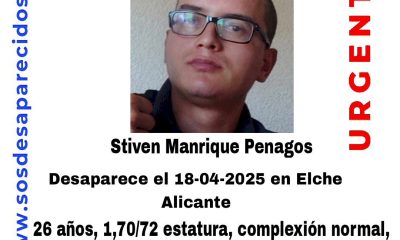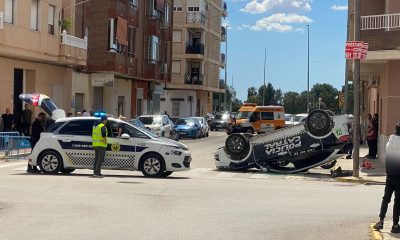Costa Blanca
Walkway from Aguamarina to La Caleta in Cabo Roig will reopen, again
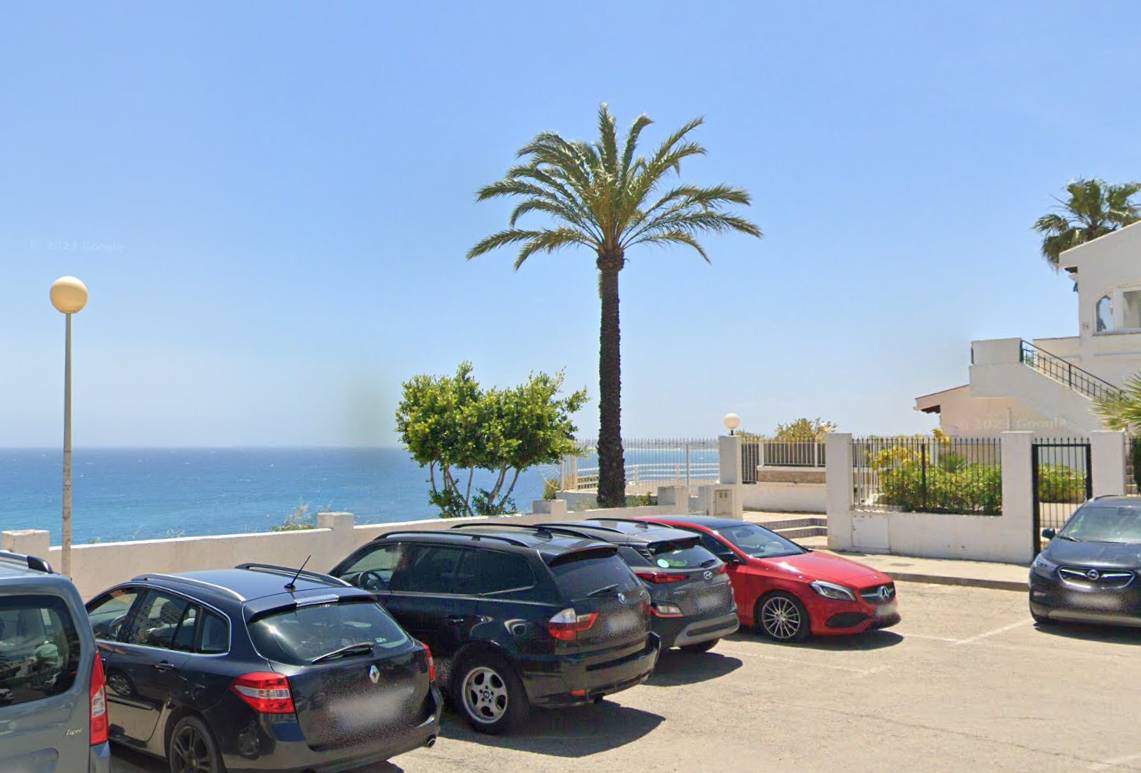
According to the notification from the Provincial Expropriation Jury to the Orihuela City Council following its approval of the court’s appraisal report, the municipal coffers will incur a cost of 26,180 euros for the expropriation of the land to reopen the pedestrian crossing connecting Aguamarina with La Caleta in Cabo Roig, near the Bellavista development.
The City Council has now requested that the Treasury deposit the specified amount in the receptacle and proceed with the preoccupation of reopening the promenade this summer.
Unable to reach an agreement, the local government and the proprietors brought the process before the provincial jury. Almost 17 times the municipal technicians’ calculation (€69,113), the proprietors presented a valuation of €1.2 million for their 227-square-metre cliffside plots in January of last year.
Nevertheless, this proposition was a decrease from the 3 million euros that they had initially requested. The 52 residents of the residential complex have established a price of approximately 170,000 euros for the 142 square meters of land that is to be expropriated, which is a decrease from the previous price of 2 million euros. Conversely, Cabo Roig SA has requested 987,000 euros (previously 1 million euros) for 85 square meters of hotel use. The City Council’s initial assessment was 44,000 euros.
The jury ultimately found that the City Council had to pay just over €26,000. The 2024 budget allocated €600,000 for the expropriation of the land and the necessary works to reinstate an idyllic pedestrian promenade along the Orihuela coastline. This should be kept in mind. This promenade has been accessible to the public for many years, but it has been closed since December 2021. The City Council closed it in accordance with a court judgement, which necessitated a two-kilometre diversion for residents and numerous visitors to circumvent a section that was only 60 metres in length.
The residential development was authorised prior to the Coastal Law and the General Urban Development Plan (PGOU) of 1990, which mandated that the initial line be used for public purposes. Nevertheless, the City Council refrained from expropriating this section, which ensured the promenade’s continuity along the entire littoral. In 2013, the residents of the development constructed a wall to seal off the path that runs along the precipice and is adjacent to the gardens of their residences.
In 2013, the local government, at the request of the socialist Antonio Zapata, the councillor for urban planning at the time, initiated the process of restoring urban planning legality against the development. The process involved the installation of a barrier and a wall, which impeded traffic on the section.
In March 2015, City Hall employees employed sledgehammers to breach the gate and wall, thereby allowing the public access to the trail, with the support of the Supreme Court of Justice (TSJ). In 2016, the Elche Administrative Court ruled in favour of the residents of the development, annulling the rulings and directing City Hall to restore the cliff walkway at the Bellavista I residential complex, which was never considered public property.
Although the local government has been appealing its enforcement, the ruling became final when the City Council, which was then governed by the People’s Party (PP), did not appeal. The Provincial Coastal Service reported in May 2017 that a right of way impacted the land in Aguamarina. Consequently, the 52 residents of the residential complex were unable to close the passageway and were required to maintain it undisturbed.
The City Council filed an appeal against the October 4th, 2018, order, which ordered the fencing and restitution of the demolished wall. The TSJ overturned the appeal in a November 2020 ruling, stating that the wall was legally constructed by the residents prior to the implementation of the current Coastal Law, which is the foundation of the Provincial Coastal Service’s right of way discussion. The City Council assumed the report and was subsequently obligated to execute the 2016 ruling, which mandates the reconstruction of the demolished perimeter fence and annuls the 2013 agreement of the Governing Board and the 2015 demolition decree.
Therefore, in December 2021, it was once again closed to adhere to the ruling, which mandated that the City Council restore it to its original condition.
Discover more from Costa Blanca Daily
Subscribe to get the latest posts sent to your email.
Costa Blanca
Alicante couple arrested for trying defraud lottery winner out of 40,000€ with a fake 6€ ticket

In Alicante, National Police officers have arrested a 37-year-old man and a 42-year-old woman, who are purportedly involved in fraudulent activities. After successfully deceiving the proprietor into believing that the prize was only €6, the suspects attempted to cash in a lottery ticket valued at €40,000.
A citizen lodged a complaint alleging fraud, which prompted the investigation. She complained that she had acquired a lottery ticket and, the day following the drawing, visited a lottery kiosk to determine whether the ticket was eligible for a prize.
The seller informed her that the system was not functioning properly and that she could verify it using her mobile phone after verifying the ticket with the authorised ticket dispenser (POS). The vendor informed her that the ticket had a prize of six euros when she viewed it on the terminal.
For her part, the victim trusted the provided information and accepted the money without suspecting deception. At the same time, the seller retained the lottery ticket.
A few days later, the complainant discovered that the was infact worth 40,000 euros and that she had been deceived. She returned to the stand where she had checked the ticket to claim her prize, and the seller informed her that she was unaware of this and that she had thrown it in the bin.
Then, she proceeded to the authorised offices of the aforementioned lottery drawings to report the incident. Upon his arrival, she was instructed to submit a complaint regarding the events.
The agents verified that the coupon was indeed a prize after collecting all the information. The saleswoman confirmed on three separate occasions that she had retained the coupon after deceiving the complainant about the prize amount.
The investigation phase also disclosed that the lottery ticket had been attempted to be redeemed by the seller’s ex-partner. However, this was not accomplished due to the fact that the authorised collection offices were aware of the incident and the agents had requested that the payment of the prize be blocked.
The officers were able to corroborate that the seller and the individual who attempted to cash in the winning ticket were both involved in a fraudulent activity as a result of the investigations.
The investigators’ findings confirmed that the two suspects had reached an agreement to collect the winning ticket. They also discovered that the woman, a lottery seller, had deceived them by faking the malfunction of the POS machine and falsely informing the complainant that the prize was six euros.
Following the investigation and the collection of sufficient evidence to establish their involvement in the events, they were apprehended and charged with fraud.
The courts in Alicante were informed of the situation subsequent to the police investigation.
Discover more from Costa Blanca Daily
Subscribe to get the latest posts sent to your email.
Costa Blanca
Acquitted of fraud for keeping €75,000 deposit on Torrevieja house

The controversial failed sale of a home in Torrevieja in 2022 between two German citizens resulted in a judicial case. The Prosecutor’s Office and the private prosecution sought €77,000 in compensation and three years in prison for the defendant, the property owner, on the grounds that she had subsequently sold the house to another individual without returning the money paid.
Nevertheless, Orihuela Criminal Court No. 4 has granted the defendant’s acquittal, concluding that there was no criminal deception and that the facts should be resolved through civil proceedings.
The case was initiated by a failed private sale of a residence in the Los Balcones development in Torrevieja. The customer was unable to secure financing prior to the deadline stipulated in the contract. The public deed was never signed, despite the fact that €75,000 was paid in advance. The property was subsequently sold to third parties by the defendant, which resulted in the filing of a complaint for fraud.
Facts that have been verified
The defendant contacted the complainant in August 2022 to discuss the sale of the property. On August 13th, 2022, the defendant signed a reservation document, with a total price of €370,000 and a deed signing date of October 31st, 2022. She explicitly stated that the appointment with the notary would not be postponed beyond October 31st, 2022, and delivered over €3,000 in cash at that time.
The buyer and the spouse of the woman who has since been exonerated convened in Germany on August 21st to receive a cash payment of €57,000. Additionally, they consented to acquire the home furnishings for €4,000, with the injured party contributing €2,000 in cash.
The private sales contract was executed by the parties a week later. The initial stipulation of the contract required the buyer to pay €15,000 within three weeks. The transaction was finalised on August 30th, 2022. The complainant was awaiting financing for the remaining quantity of €295,000.
Similarly, the initial stipulation explicitly stated that “the remaining portion of the agreed price will be paid upon the signing of the public deed of sale.” The aforementioned signature is scheduled for October 31st, 2022. The deposit money would be forfeited in the event of the buyer’s cancellation, and it would be transferred to the vendor. Double the deposit would be reimbursed to the customer by the seller in the event of contract cancellation (Art. 1454 CC).
The defendant, who has since been acquitted, executed a deed of sale of the property to third parties on July 25th, 2023. There is no record of the return of the €75,000 she was claiming, and there is insufficient evidence that she did so without prior dissolution of the signed contract or notification to the complainant.
Nevertheless, the Court determined that the dispute did not satisfy the criteria of Article 251.2 of the Criminal Code, which required criminal deception, and classified it as a civil dispute.
In the ruling, the judge explicitly enquires, “Where is the deception that the type requires?” He notes that the buyer was informed that the property would be relisted if he failed to secure financing in a timely manner, which subsequently transpired.
In order to underscore that frauds that are subject to Article 251 of the Criminal Code must also entail a minimum level of deceptive manoeuvring, the ruling incorporates updated references from the Supreme Court, such as the most recent Supreme Court ruling, 631/2024.
The judge in this instance has determined that “a failed sale as a result of insufficient financing cannot be criminalised.” María Barbancho Saborit, the defendant’s attorney, stated, “These types of rulings reinforce the notion that not all economic disputes are criminal.” “It is imperative to distinguish between breaches of contract, which are inherent in civil matters, and truly criminal conduct and preserve the presumption of innocence.”
The decision is not conclusive and may be appealed to the Alicante Provincial Court. Numerous witnesses, including those from the vendor, the defendant’s family, and professionals involved in the purchase and sale process, were presented during the trial, in addition to a substantial amount of documentary evidence.
Discover more from Costa Blanca Daily
Subscribe to get the latest posts sent to your email.
Costa Blanca
Easter traffic operation ends with at least 22 deaths

It starting at 15:00 on Friday April 11th, the special traffic operation for Holy Week and ended at midnight last night. A minimum of 22 individuals have died on the roads in Spain.
According to data from the General Directorate of Traffic, there were 21 fatal incidents on the intercity road network as of 8 p.m. on Easter Sunday, resulting in 22 fatalities.
Last year, 28 individuals lost their lives on the highways during the entire Holy Week.
Discover more from Costa Blanca Daily
Subscribe to get the latest posts sent to your email.
-
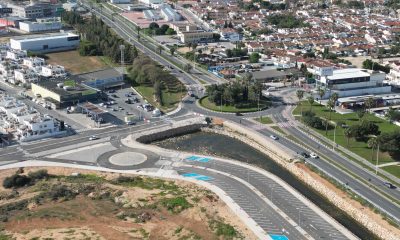
 Costa Blanca2 days ago
Costa Blanca2 days agoTorrevieja fails to comply with its commitment to open new road at La Hoya for Easter
-
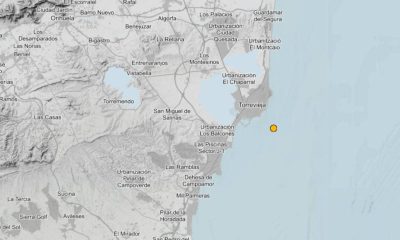
 Costa Blanca1 week ago
Costa Blanca1 week agoTorrevieja records a 2.8 magnitude earthquake
-

 Costa Blanca2 weeks ago
Costa Blanca2 weeks agoSpanish family killed in helicopter crash in New York
-

 Costa Blanca2 weeks ago
Costa Blanca2 weeks agoA car fire on the Orihuela Costa is promptly extinguished by firefighters
-

 Costa Blanca1 week ago
Costa Blanca1 week agoThe Alicante Tourist Board website now available in seven languages
-

 Costa Blanca5 days ago
Costa Blanca5 days agoArrested in Murcia for activities linked to jihadist terrorism
-

 Costa Blanca2 weeks ago
Costa Blanca2 weeks agoElche residents rescued after a fire caused by an electric scooter
-

 Costa Blanca2 weeks ago
Costa Blanca2 weeks agoSuspect held for the murder of John George extradited to a Spanish prison





